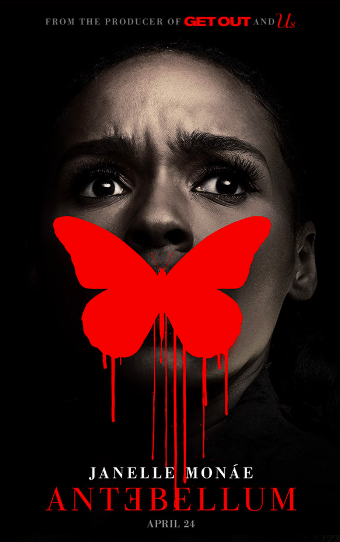Movie Review: Antebellum
By: Arielle Hall
Antebellum, this year’s latest psychological thriller starring Janelle Monae, finds success as a cinematic masterpiece in it’s bizarre timing and enigmatic premise, that seemingly strives to terrorize all five of the viewer’s senses.
From the moment it began, a careful play on our senses is expertly advanced throughout the film. The film opens with a quote by William Faulkner - one that sets the tone for the movie as it begins to unravel.
The first scene is beautiful - A little girl picking flowers in the yard of her idyllic antebellum plantation yard, her mother carefully watching her with approval. In the middle of lilting and joyous violins, the scene abruptly cuts, and a few slaves are shown onscreen for the first time, washing clothes.
As the violin plays an increasingly frantic song as more slaves are pictured working, the illusion is shattered, as the next scene captures the horror of slavery through the silent, yet strange bending of time. In only one moment - two loved ones are violently separated, one captured, one dead.
The kind of wicked violence and unprovoked savagery that continues to unfold is unsurprising - it isn’t until a small glitch in the space-time continuum propels the viewer into the modern-day ennui of Monae’s character do things take a turn. .
After Monae’s character awakens next to her husband in a lavishly furnished Georgetown style home, the audience begins to question not only her reality - but our own. Was the first 30 minutes solely the nightmarish trick of an overactive imagination? Did I look away and miss a small detail that caused this transition?
As Monae’s life as a successful writer is painted before the screen, the audience becomes dizzy with anticipation; curious to know how these two jagged timelines connect. Blurred images from the camera, and misleading perspectives only increase the viewer’s sense of delirium as they attempt to guess which time period the next scene will be in.
Juxtaposed in life as a successful PHD writer and as someone else’s property, the full story of both timelines is never revealed. In the climax of the movie, in a manner only describable by ‘quantum entanglement,’ as symbols from present-day are shown on the plantation - a butterfly tattoo, an airplane in the sky, the tune of “lift every voice and sing.”
All of these things are left unexplainable to the human eye, and to history itself.
As we traveled back to the present, I waited with baited-breath for something supernatural to occur in Monae’s modern lifestyle and explain this horrible phenomenon - but nothing does.
From microaggressions to eventual kidnapping, Monae is targeted as a black woman in both instances.
At this point, the movie asks us, what does ordinary really mean?
No matter the year or your position in society, the claws of white supremacy have the ability to drag you down at a moment’s notice. That uncertainty creates a perpetual fear and anxiety that conceives filmic madness in its purest form. It’s the kind of emotional instability that can only be understood if you are irrevocably placed in our shoes.
Which is exactly what antebellum does; it captures the audience attention - forcing them to ride the uncertainty of delirium.
